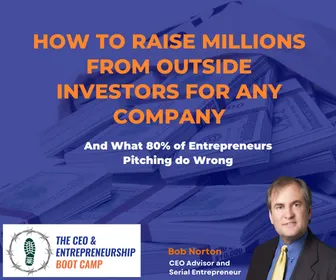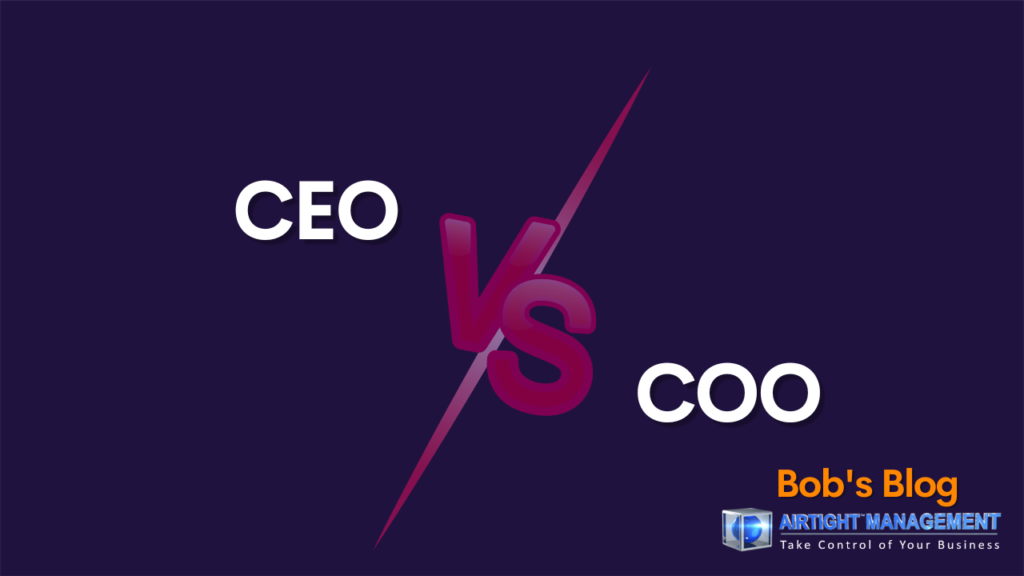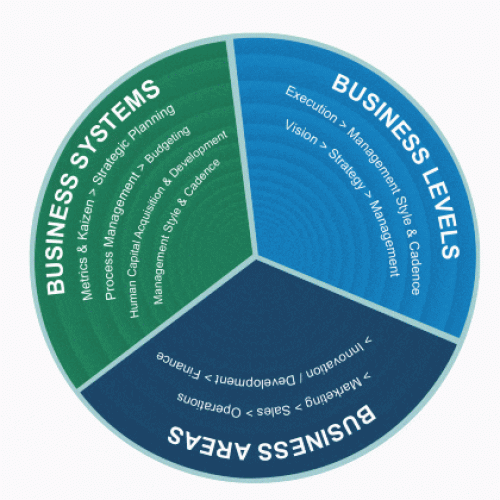Easy. COOs deal with short-term management and daily, weekly, and monthly issues. This is the “care and feeding” of employees to coordinate resources and track results. CEOs work more on the long term, from 1 to 5 years out. CEOs also spend their time, maybe as much as 50%, on proper staffing at the management level, coaching this team up and developing these managers to grow professionally to take on more responsibility with that growth. Often the CEO will spend 50% of their time divided between strategy development, customer contact (direct input), and optimizing processes for marketing, sales, and finance. In smaller companies where there is no full-time CFO, 50% of a CEO’s time can go to fundraising at times too. So, you can see how many situations can require more people’s power.
“The best executive is the one who has sense enough to pick good men to do what he wants done and self-restraint to keep from meddling with them while they do it.” – Theodore Roosevelt
Typically, a CEO and COO are not both needed until a company exceeds 50 employees, but there are many factors. Some founders/owners also lack the management skills, patience, or detail orientation required to manage a team and are better focused on other areas of the business. They are more “visionary” and get bored with daily operations, detail, and people problems that are the heart of management.
If high growth is planned and capital is cheap, the company may staff up more fully, getting ready for the future and to handle the growth. And to get the infrastructure and team built and in sync ahead of the need.
Of course, the #1 job of a CEO is to set the main objectives via a MBO/OKR or other goal-setting process that links the long-term strategic priorities with monthly, quarterly, and annual goals that the management team then adopts and “owns.”. Almost no company will be successful without a disciplined goal-setting process and monthly meetings of the senior staff. This requires collaborative management, planning, and lots of ongoing communication to do well.
“The best way to predict the future is to create it.” – Peter Drucker
Remember, anyone can call themselves a CEO, with any skill set, even a new graduate. However, becoming a competent CEO requires 10 to 15 years of experience minimum. Many founders will be replaced, fired, or moved into a job created for them because they lack the experience, discipline, and other things that are best to grow the company. This is usually better for them, too, because their equity will become worth many times what it would if they stayed as the CEO. Getting a CEO can help delay this or even groom the COO to become CEO too.
“The function of leadership is to produce more leaders, not more followers.” – Ralph Nader
The role of a CEO is not just about making decisions and setting goals; it also involves building and nurturing a strong leadership team. CEOs need to identify and develop future leaders within the organization, ensuring that there is a pipeline of talent to support the company’s growth. This requires investing time and effort in coaching and mentoring managers, providing them with opportunities to learn and grow, and empowering them to take on more responsibilities.

Access the Webinar Replay Now
How to Raise Millions from Outside Investors for any Company – Learn the 30 other sources of capital beyond angel and VC and how to prepare a company and get it into the top few percent investors see.
One important aspect of a CEO’s role is strategic planning. CEOs are responsible for setting the direction and vision of the company, identifying new market opportunities, and developing strategies to stay ahead of the competition. This requires a deep understanding of the industry, market trends, and customer needs. CEOs need to constantly scan the business landscape, evaluate risks and opportunities, and make informed decisions to guide the company towards success.
“Success usually comes to those who are too busy to be looking for it.” – Henry David Thoreau
In addition to strategic planning, CEOs also play a crucial role in building relationships with customers and stakeholders. They act as the face of the company, representing its values and interests in interactions with external parties. CEOs need to engage with customers, listen to their feedback, and use that information to drive improvements in products and services. Building strong relationships with stakeholders, such as investors, partners, and regulators, is also essential for long-term success.
Join our consulting session to solve your complex business problem, Click here
As companies grow and evolve, CEOs must ensure that the organization has the right structure, processes, and culture to support its goals. This involves designing effective organizational structures, establishing clear lines of communication and decision-making, and fostering a culture of collaboration and innovation. CEOs need to create an environment where employees feel motivated and empowered to contribute their best, aligning their efforts with the company’s objectives.
“The best leaders are those most interested in surrounding themselves with assistants and associates smarter than they are.” – John C. Maxwell
In summary, while both CEOs and COOs play critical roles in an organization, their responsibilities differ in terms of focus and time horizon. COOs handle short-term management and operational issues, while CEOs take a broader perspective, focusing on long-term strategic planning, staffing, and relationship-building. A competent CEO possesses experience, discipline, and the ability to set clear goals and objectives while also nurturing leadership talent within the organization. Ultimately, the success of a CEO lies in their ability to inspire and guide the company towards its vision, creating a sustainable path for growth and prosperity.
“Leadership is not about being in charge. It is about taking care of those in your charge.” – Simon Sinek











